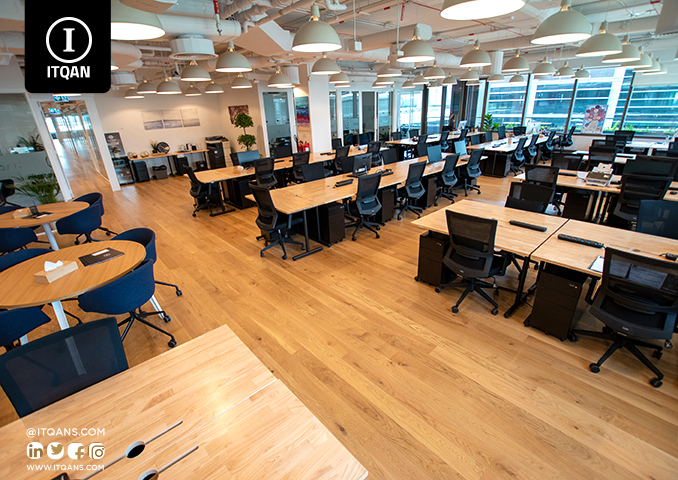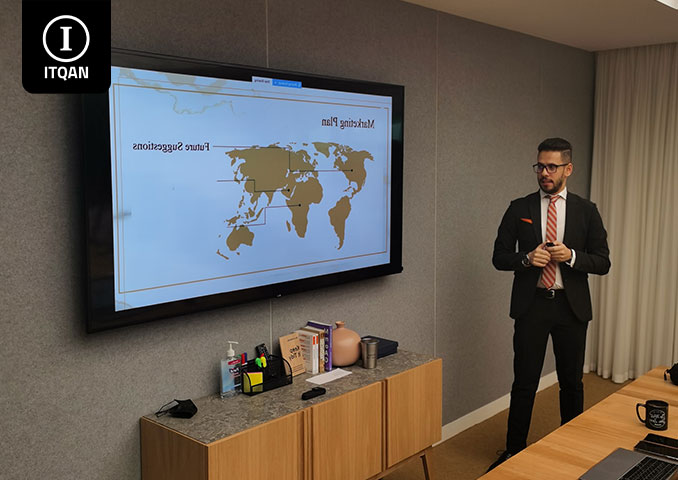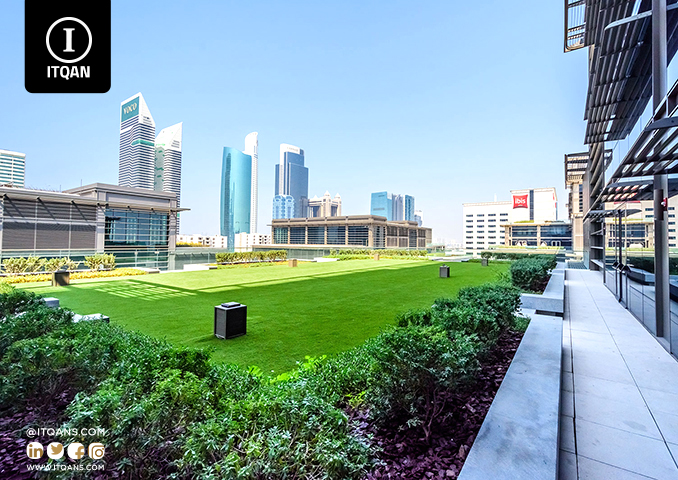The United Arab Emirates is considered a distinguished investment destination for foreign investors. In this article, in cooperation with Itqan, a company specializing in business and consulting, we will explore foreign investment opportunities in the Emirates and the benefits that can be gained from them.
We will review local legislation and policies that promote foreign investment and provide investor protection. We will highlight key sectors that are attractive to foreign investment, such as real estate, tourism, energy, technology, and innovative industries.
We will provide a comprehensive overview of the economic and commercial environment in the UAE and what makes it a preferred destination for investment. We will also review the incentives and privileges available to foreign investors, such as free investments, tax facilities and flexible legislation.
With Itqan Company’s experience and specialized consulting, we will provide valuable guidance and advice to foreign investors who are interested in investing in the Emirates . This article will be a comprehensive guide highlighting the opportunities, challenges and requirements for foreign investment in this dynamic and prosperous country.

Foreign investment in the UAE
جدول المحتوى
ToggleForeign investment in the UAE
Foreign investment in the UAE is considered a major driver of economic development and achieving the national vision of transforming the economy into a diversified and sustainable economy. The UAE offers an investment environment full of opportunities, supported by advanced infrastructure and government policies that are open to business and investments. Key sectors that attract foreign investment include real estate, tourism and hospitality, energy, technology, manufacturing, and financial and banking services. The UAE is also distinguished by its government policy aimed at encouraging diversification in sources of income, developing innovation and technology, and building global strategic partnerships to strengthen the economy, provide job opportunities, and improve the standard of living.
Licenses required for foreign investors to start their work in the UAE
For foreign investors wishing to start their business in the UAE, several licenses and permits are required depending on the type of business activity and the location in which they wish to conduct their business. Here is a general list of required licenses:
- Commercial Registry Permit: The Commercial Registry Permit is considered the first and essential step in establishing any commercial activity in the Emirates. The company is registered with the competent authorities in the emirate chosen by the organization.
- Work Permit: Foreign investors need a work permit for foreign employees and partners working in the company.
- Residence Permit: Foreign investors must obtain a residence permit to legally reside in the UAE while conducting their business.
- Business license: Foreign investors must obtain a license to practice their specific business activity, and this is done through the local authorities in the emirate.
- Building and operating permit: If an investor intends to build or rent a building for his business, he may need a building and operating permit from the relevant authorities.
- Municipal and environmental permits: Some commercial activities may require additional permits from local authorities and environmental agencies.
- Health and Safety License: Some businesses may require a special health and safety license from the relevant health authorities.
- Tax Declaration: Foreign investors must register for taxes and commit to periodic filing of tax returns.
Taxes imposed on foreign investment in the UAE
In the UAE, there is a flexible and simplified tax system that attracts foreign investors, which is characterized by not imposing taxes on personal and corporate income in most sectors. However, there are some taxes that foreign investors must adhere to:
- Value Added Tax (VAT): VAT was introduced in the UAE starting in 2018, and is levied on most goods and services at a rate of 5%.
- Infrastructure tax (rent): A tax is imposed on infrastructure for utilities and public services such as water, electricity and telecommunications, which are collected through monthly bills.
- Tax on oil and gas profits: This tax is imposed on companies operating in the oil and gas sector, and is calculated as a percentage of revenues.
- Real estate tax: Owners must pay a real estate tax that depends on the value of the property and is classified as a local tax.
Conditions for foreign investment in the Emirates
Conditions for foreign investment in the UAE vary depending on the type of investment activity and the sector in which one wishes to invest. However, there are some general conditions that may apply:
- Local partnership: In some sectors, legal requirements may require a local resident partner who owns a certain percentage in the company, and this is regulated according to local company law.
- Licenses and permits: Some investment activities may require obtaining licenses and permits from local authorities and relevant government agencies before starting work.
- Compliance with local laws and regulations: Foreign investors must adhere to local and federal laws and regulations in the UAE, which include labor, trade, tax, security and safety laws.
- Real estate ownership: In some cases, real estate investments may require that the foreign investor have a permit to own real estate from the relevant authorities.
- Commitment to the terms of government partnership: In some cases, investments in vital or strategic sectors may require partnership with the government or government companies.
- Obtaining security permits: Some investment activities may require obtaining security permits from the relevant authorities.

Advantages of foreign investment in the Emirates
The most attractive investment sectors in the UAE
The United Arab Emirates is considered one of the most prominent investment destinations in the world, as it enjoys a developed and favorable investment environment that attracts investors from different parts of the world. The UAE is characterized by great economic diversity and advanced infrastructure, which provides wide-ranging investment opportunities in several different economic sectors. The most attractive investment sectors in the UAE :
- Real estate and infrastructure: The real estate and infrastructure sectors are considered among the most attractive sectors in the Emirates, as they provide opportunities to invest in residential, commercial, and tourism projects, in addition to vital facilities such as airports, ports, and road networks.
- Energy and Petroleum: The UAE derives a large portion of its economy from the oil and gas industry, which provides investment opportunities in the fields of exploration, production, and petroleum technology.
- Technology and Innovation: The UAE seeks to achieve economic diversification by strengthening the technology and innovation sector, and providing a suitable environment for startups and major technology companies.
- Tourism and Hospitality: Tourism and hospitality are important sectors in the UAE economy, as the UAE attracts millions of visitors annually and provides investment opportunities in hotels, resorts, restaurants, and entertainment.
- Trade and Logistics: Due to its strategic location, the UAE is a major commercial hub for trade and logistics, providing investment opportunities in the areas of shipping, distribution, and e-commerce.
- Advanced industrial industries: The UAE aims to diversify its economy by developing advanced industries such as aviation and space industries, defense industries, and marine industries.
- Education and Training: The UAE is witnessing continuous growth in the education and training sector, providing opportunities for investment in private schools, universities, and vocational training centers.
Facilities granted to foreign investors in the Emirates
Foreign investors in the UAE can benefit from several facilities and incentive benefits aimed at attracting foreign investments and enhancing the business environment. Among these facilities:
- Flexible laws and regulations: The UAE has a flexible and modern legislative environment that allows for the establishment and operation of companies easily, providing foreign investors with a favorable legal framework.
- Customs facilities: The UAE provides customs benefits such as not imposing customs taxes on imports and exports in free zones and special economic zones.
- Advanced infrastructure: The UAE has an advanced infrastructure that includes advanced ports, airports, and transportation networks, which facilitates transportation and export operations and reduces production costs.
- Financial and tax facilities: The UAE offers financial incentive programs such as tax incentives and tax exemptions for companies in some sectors and special economic zones.
- Access to regional and international markets: The UAE is located in a strategic location that facilitates access to the markets of the Middle East, Africa and Asia, making it a center for global trade.
- Stable economic environment: The UAE enjoys a stable economic environment and strong financial institutions that contribute to attracting foreign investments.
Reasons for foreign investment in the Emirates
The United Arab Emirates is considered one of the most prominent investment destinations in the world, as it enjoys a stable economic environment, strong institutions, and flexible legislation that attracts foreign investors from around the world. This attraction is due to a variety of factors that make the UAE a preferred destination for foreign investment. In this context, we will review some of the most important reasons for foreign investment in the Emirates:
- Political and economic stability: The UAE enjoys a stable political and economic environment, which creates a favorable environment for investment and business development.
- Advanced infrastructure: The UAE has a developed and integrated infrastructure in the fields of transportation, communications, energy and technology, which attracts investments in various sectors.
- Government Facilities: The UAE government offers a range of facilities and incentives to foreign investors, such as tax exemptions and simplified bureaucratic procedures.
- Educated and multinational workforce: The UAE provides an educated and multinational workforce, which facilitates business management and diversity of experiences and skills.
- Strong banking and financial sector: The UAE includes advanced and reliable banks and financial institutions, providing a stable financial environment and sufficient financing resources for investment projects.
- Access to regional and global markets: Thanks to its strategic location, the UAE provides opportunities to access the markets of the Middle East, North Africa and Asia, and is considered a center for trade and distribution.
At the conclusion of the article, we find that foreign investment in the UAE is considered a vital element in promoting economic development and achieving the country’s economic vision. In cooperation with Itqan Company, the role of the private and government sectors is evident in providing a favorable and stimulating investment environment. The UAE also provides advanced infrastructure, modern laws, and tax facilities, and aims to develop vital sectors such as technology and renewable energy. As investment and development efforts continue, the UAE is expected to remain a preferred destination for foreign investment in the long term.
Frequently asked questions about foreign investment in the UAE
What investment opportunities are available to foreign investors in the UAE?
The UAE provides investment opportunities in a variety of sectors such as real estate, technology, energy, tourism, heavy industries, and financial services.
What are the procedures and requirements necessary to obtain an investment license in the UAE?
An application must be submitted to the Federal Authority for Business Licensing, specifying the type of company, specifying the location of the company and the required capital.
Can foreign investors obtain citizenship or permanent residency in the UAE through investment?
Foreign investors can obtain permanent residency if they have recognized investments.
What taxes apply to foreign investments in the UAE?
The UAE enjoys a convenient tax system with reduced tax duties in many sectors, and does not impose a tax on personal income or capital.
What are the main economic sectors in which it is recommended to invest in the UAE?
What are the main economic sectors in which it is recommended to invest in the UAE?
Are there restrictions or special conditions for foreign investment in some vital sectors?
There can be special restrictions or conditions in some sectors such as construction, real estate and mining, and require specific localization of the local workforce.
How can foreign investors protect their rights and investments in the UAE?
Rights can be protected through proper contracting, international arbitration in cases of disputes, and taking advantage of the strong law system in the UAE.
What services and support are available to foreign investors by the UAE government?
Providing support services to investors through competent government bodies and free zones, and providing appropriate infrastructure and a legislative environment conducive to business.
What are the emerging and innovative investment opportunities in the UAE?
Innovative investment opportunities include such as emerging technology, industrial innovations, renewable energy, and innovations in financial services.
What are the necessary procedures to establish a foreign investment company in the UAE?
This includes submitting an application to the Federal Authority for Business Licensing, determining the type of company, its location, the required capital, and hiring local labor.

















